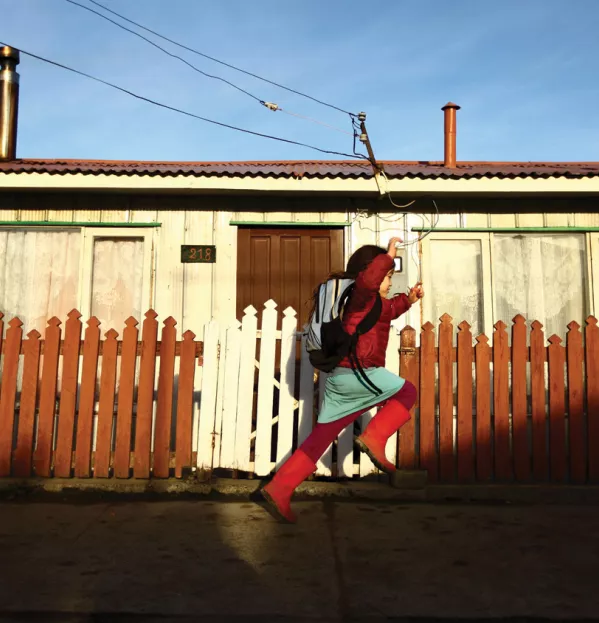Soft skills get the hard SEL as Pisa weighs up new table

Measuring pupils’ self-esteem, empathy and resilience can be fraught with difficulty - but now there are calls for these “soft skills” to feed into international rankings. This is despite warnings that some countries could be assessed on values that are alien to their culture, or are simply not a priority - for example, territories in which there may be 100 pupils per teacher.
Some even fear that international assessments could harm children with social and emotional difficulties. However, countries across the world are taking the teaching and learning of social and emotional skills more seriously. In the next round of international education survey Pisa, countries are likely to be judged on how well they prepare students for life in a globalised world, rather than simply on their cognitive skills in reading, science and maths (see “Are you ‘globally competent’?” box, below).
But what are the best ways to measure these social and emotional skills? How can teachers be encouraged to look for them and how should the results of measurement be used?
These proved to be contentious questions at a gathering of 40 policymakers, advisers, academics and campaigners from 19 countries at a recent five-day seminar in Salzburg, Austria, on measuring social and emotional learning (SEL). Some of the key skills cited include resilience, empathy and self-esteem - but the methods and terminology vary from country to country. For example, the Collaborative for Academic, Social and Emotional Learning in America focuses on five areas: self-awareness, self-management, social awareness, relationship skills and responsible decision-making.
‘We may be comparing countries against values that may be alien to their own culture’
The majority of countries do not measure SEL in a high-stakes accountability system, but in Chile, schools could be closed down if they fail to create a good environment for SEL and achieve poor academic results (see “Chile: hot on social skills” box, below).
Many believe that a range of school assessments - such as self-reports, teacher observations and task performance - would help teachers to understand the needs of all students and address them effectively in the classroom. Yet, in assessing soft skills, it can be hard to get accurate results, compared with measuring cognitive skills.
Deciding which tools would be best to use is not the only challenge - some cultures are still not convinced that these skills should be measured in young children at all.
The Organisation for Economic Cooperation and Development (OECD), which has been carrying out an international study of skills development in cities around the world, found that people in Oslo, Norway, were reluctant to measure the SEL of young children.
Parents deem it ‘too harsh’
Koji Miyamoto, who started the study at the OECD and is now a senior economist at the World Bank’s education global practice, said: “The impression I got is that it’s just a bit too harsh and parents don’t like it when they hear about diagnostics of children’s perseverance and self-esteem.”
Parents did not want to see their children put into a particular psychological box at an early age, he explained.
On plans to collect data on SEL across countries, he predicted that there would be “a lot of resistance to delivering such an ambitious survey” owing to pupils’ “test fatigue” and because teachers were “feeling pressured to deliver improvement in achievement tests, so they don’t seem to have much time or mental space”.
Some significant issues exist with the validity of applying values across cultures - for example, collaboration means something different in the West compared with the East.
Carmel Cefai, joint founder of the European Network for Social and Emotional Competence, said: “To apply [OECD definitions of social and emotional skills] worldwide is problematic. We may be comparing such countries against values that may be alien to their own culture.”
He believes Pisa has reduced education to a “one size fits all” system - and if these soft skills are ranked, then there is a risk that countries and children would be labelled as SEL illiterate, and rejected rather than supported by the system. This, Professor Cefai fears, could lead to more mental health issues. He warned: “These indicators may become a health hazard for some children.”
Professor Cefai added: “And we know what happens with Pisa: for schools to raise grades, they tend to get rid of problematic children and children with disabilities.”
Success often depends on teachers being engaged with SEL and having enough time in the day - which can be difficult for those countries with large class sizes and absenteeism. Bangladesh, for example, has just one teacher per 100 primary school pupils.
Many teachers are also not equipped with the knowledge of how these non-cognitive skills can be measured and taught. Tonia Casarin, author of a new book that helps pupils identify their emotions, said: “Teachers [in Brazil] are saying they need more and more examples and material.”
To unlock more funding, resources and training for teachers, SEL needs to be measured and compared internationally, according to some policy advisers at the Salzburg Global Seminar. Michael Nettles, senior vice president of Educational Testing Service’s policy evaluation and research centre, said: “Once you say that Singapore has the highest reading scores, or maths or science scores, everybody then views that as the standard. But it could be equally important to talk about how conscientious the students are in Singapore and how resilient, how ambitious, how agreeable they are; what is their work ethic?”
You need a Tes subscription to read this article
Subscribe now to read this article and get other subscriber-only content:
- Unlimited access to all Tes magazine content
- Exclusive subscriber-only stories
- Award-winning email newsletters
Already a subscriber? Log in
You need a subscription to read this article
Subscribe now to read this article and get other subscriber-only content, including:
- Unlimited access to all Tes magazine content
- Exclusive subscriber-only stories
- Award-winning email newsletters